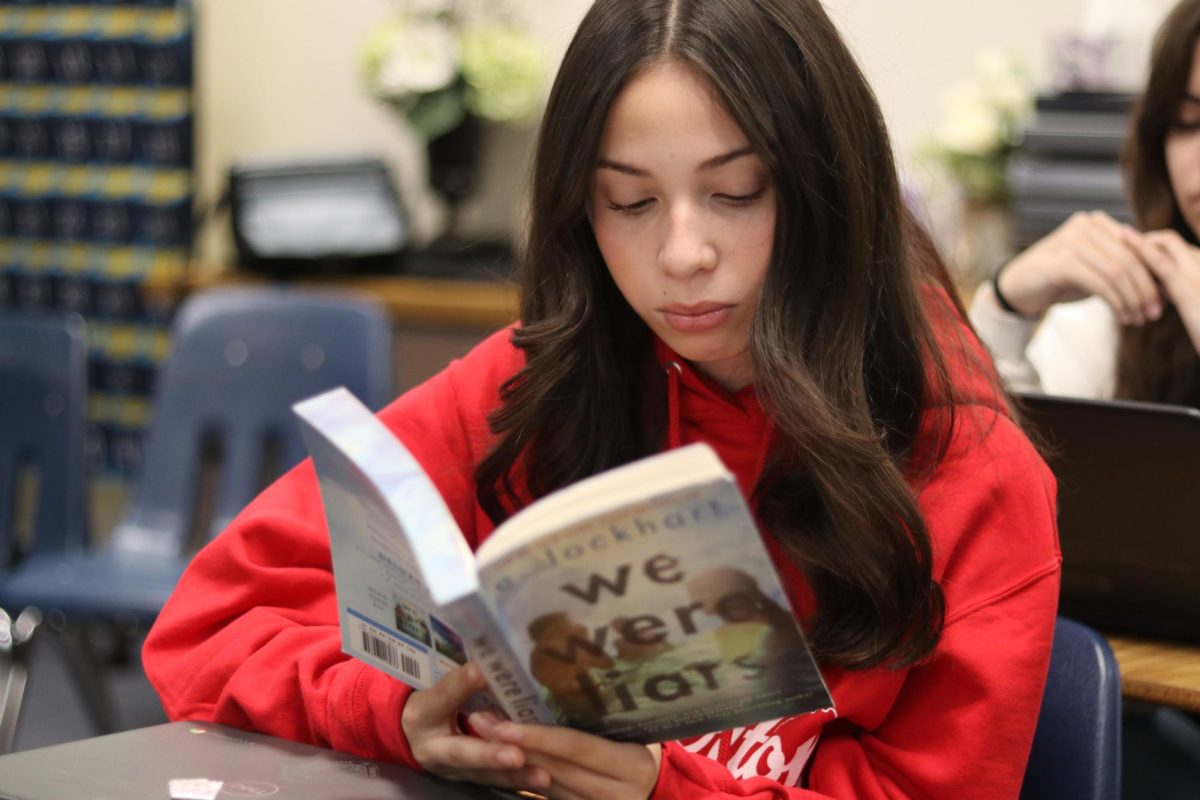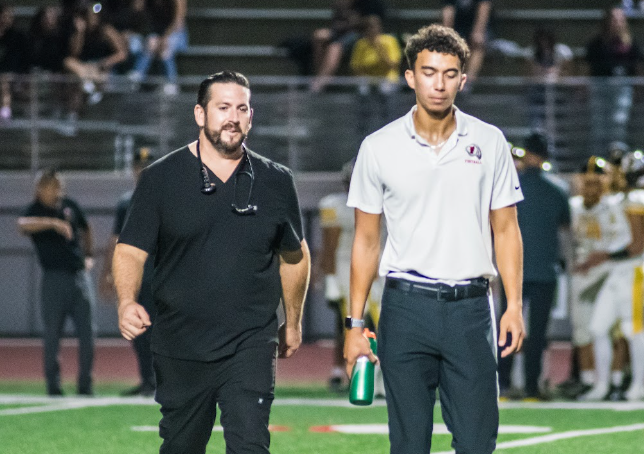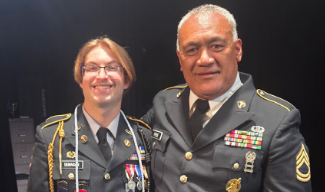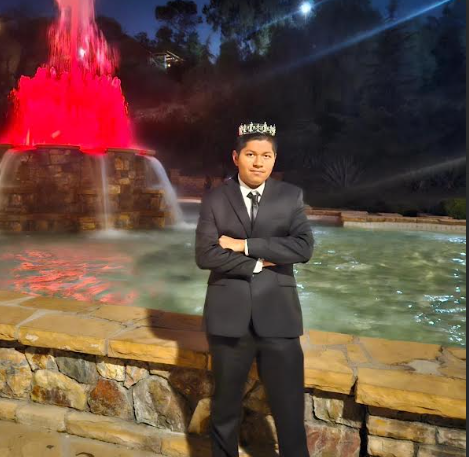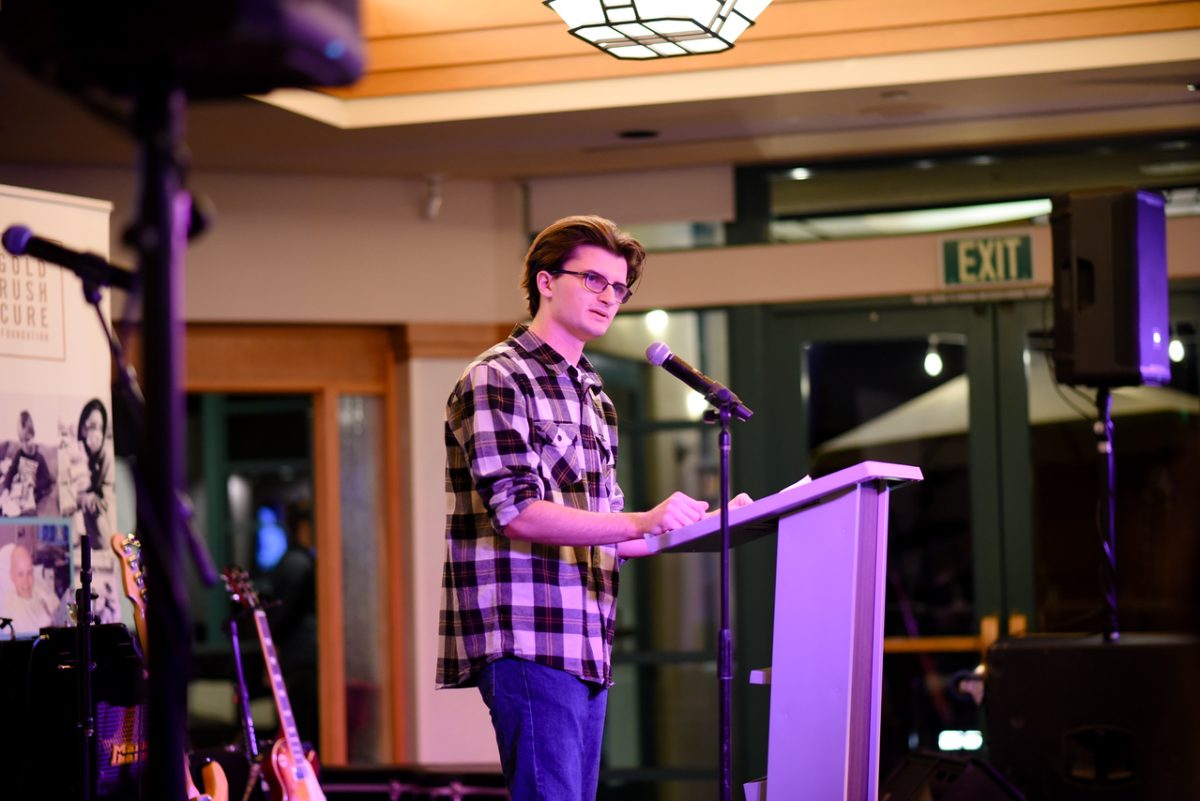An average day in the life of Jada Kiloh begins like this: wake up at 7 a.m. and arrive at the Fullerton High School farm at 7:30 a.m.
At 7:34, Kiloh prepares feed for her goat, Barnaby, and steer, Hans. After they eat, and she makes sure they have water in their pens, it is off to the pasture to repeat the same process for all the lambs and goats.
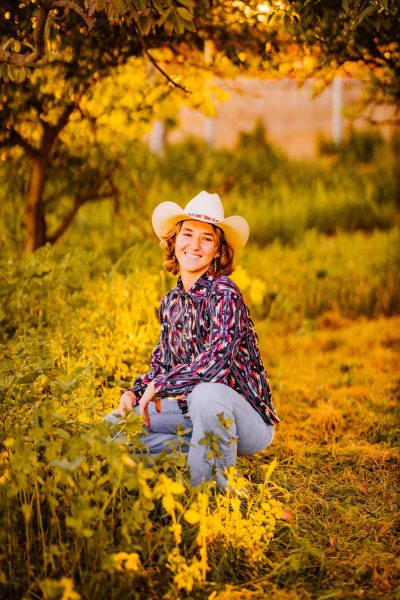
By 8 a.m., all animals are fed and given water. Kiloh will then use the remaining time before first period to ensure that Barnaby and Hans, her show animals, get exercise.
When 8:20 rolls around, Barnaby and Hans return to their pens, and Kiloh walks across the street to the main campus to begin the school day. As soon as fifth period lets out, Kiloh is back on the farm to repeat the process. On most days, she is the last person to leave the farm.
And make no mistake. Kiloh loves every minute spent on the farm working with animals. Monday through Sunday, breaks and federal holidays included.
Senior Jacob Cuevas refers to the farm as Kiloh’s second home.
“She is just always on her feet and doing something at the farm,” Cuevas said. “It seems like she can never get enough; it’s her home.”
The reason Kiloh is so devoted to the farm’s animals, in addition to deeply caring for them, is due to her long-standing dream to be a veterinary oncologist, a vet who specializes in diagnosing and treating cancer in animals.
“I always knew I wanted to be a veterinarian,” Kiloh said. “Since I was in kindergarten, I knew. But the oncology part really started in junior high.”
Oncology was something she discovered after witnessing cancer affect both her father and a beloved horse. A Stage 4 throat cancer survivor, Kiloh’s father was bedridden for most of her elementary school years.
¨It was definitely hard for me when I was little,” Kiloh said. “I could not understand why he could not do the things that a normal dad could do, like go to the aquarium with us.”
By the time she reached junior high, her father was in remission. While this came as a tremendous relief, it left Kiloh with questions about the nature of disease and cell growth.
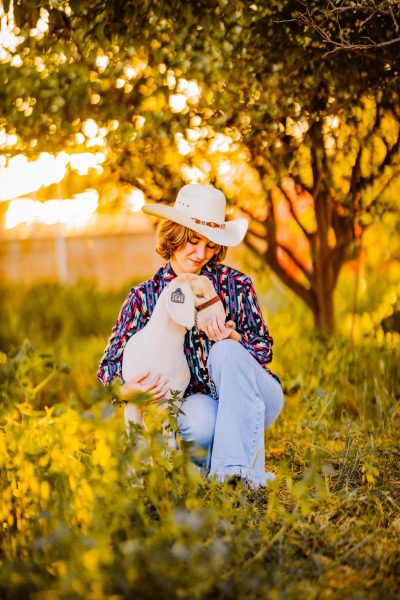
(Photo courtesy of Jada Kiloh)
Another reason why she wants to study oncology relates to a horse named Lucky that she met on a summer trip to the White Rock Horse Rescue, a rehabilitation ranch in Yucca Valley.
“Lucky had been brought to the ranch,” Kiloh said. “The woman who was with him had three polo horses that couldn’t race anymore. She was sobbing because she did not want to let them go, so I promised her I would find them good homes.”
Two of the three horses were adopted, leaving the Thoroughbred on his own. Now attached to him, Kiloh made the decision to adopt.
“I ended up falling absolutely in love with him,” Kiloh said. “I took him off the adoption list and paid for him with the money I earned working as a ranch hand.”
Unfortunately, Kiloh’s time with Lucky was cut short when he contracted both skin cancer and equine distemper. Though the latter is a viral disease curable in horses, and Kiloh would blanket the horse to limit sun exposure, both diseases left a toll on his body. After spending only a year at White Rock, Lucky would pass.
“It was dormant for the longest time,” Kiloh said. “His cancer started to multiply rapidly and that was the moment I knew I needed to study oncology for my dad and so that I knew what happened to my horse. You find the cure for one, you find the cure for all.”
Upon joining FUHS’s agriculture program her sophomore year, and getting involved in Future Farmers of America, Kiloh broadened her focus to include livestock oncology.
“When I was working with goats, I realized how impactful cancer is in the agriculture business,” Kiloh said. “A lot of animals get skin cancer because they are out in the sun, which I did not know before.”
Kiloh began an ongoing research project focused on a herd of goats. The project’s purpose was to maintain the herd’s health by providing early and immediate treatment should a member become sick or hurt.
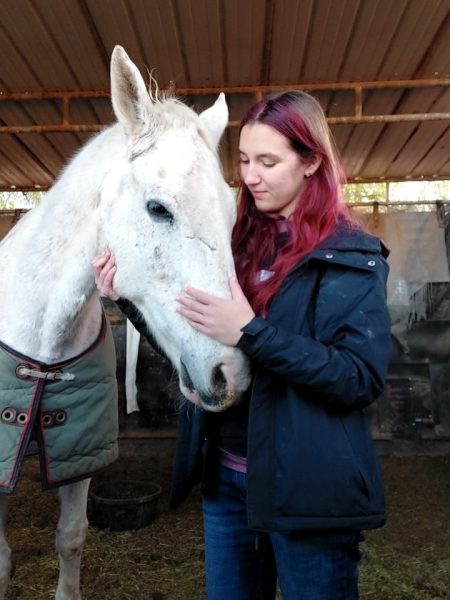
“If you go out every morning and afternoon and look at them, you can tell right away when one of them is not feeling good,” Kiloh said. “A goat that is sick has to be quarantined in the barn where no coyotes can reach it and administered antibiotics. The pasture then needs to be disinfected and the rest of the herd must move into a new pasture.”
During this process, Kiloh consulted a licensed veterinarian for guidance.
“I learn from the vets that we call,” Kiloh said. “I can make my own assessment and diagnosis, but to have backing from someone with a degree is better.”
Because goats are bred on the farm at the end of the school year with births in the fall, Kiloh has assisted in three deliveries. This year, she delivered her last kid, or baby goat, for the school farm and created a breeder group so that underclassmen could learn the ropes of animal healthcare.
Meeting regularly, the group is a tight-knit community open to all in the agriculture program. Sophomore Viviana Sifuentes, who is the group’s social media manager, Kiloh with being a pillar of support and someone she can always go to for questions.
“She’s so passionate about what she does,” Sifuentes said. “Even though I have a lamb and she has a goat, she has done so much to try and help me. She knows so much about so many different animals, not just goats.”
According to Sifuentes, Kiloh taught her how to vaccinate a goat and briefed her on the basics of animal healthcare. Beyond being a source of knowledge, she has instilled in the sophomore an appreciation for agriculture.
“When Jada started the breeder group, it opened my eyes and made me realize that I did want to continue with agriculture,” Sifuentes said. “Even though I was hesitant to raise an animal at first, the breeder group introduced me to others who had animals. The moment I expressed an interest in caring for an animal, Jada would foster that interest.”
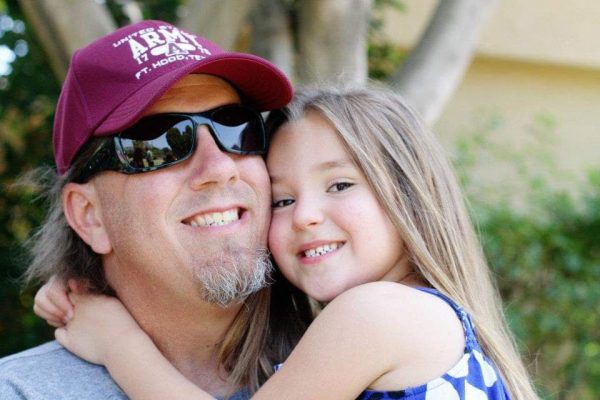
Cuevas, who also wants to study animal oncology, says that with Kiloh’s encouragement, he raised a show goat named Dempsey.
“I never thought I’d be into showing goats,” Cuevas said. “[Jada] told me I should raise a goat and show it at the Orange County Fair. I thought it was a lot of work until I tried it and discovered I loved it.”
Agricultural teacher Jennifer Kuhns calls Kiloh an exemplary leader.
“She’s an understated leader,” Kuhns said. “She doesn’t need the spotlight, she just moves forward with a purpose, and people listen. She has a huge heart with so much compassion for people and animals.”
In the fall, Kiloh will attend Mt. San Antonio College to study animal science. She hopes to get her doctorate in veterinary science with a specialization in livestock and equine oncology.

